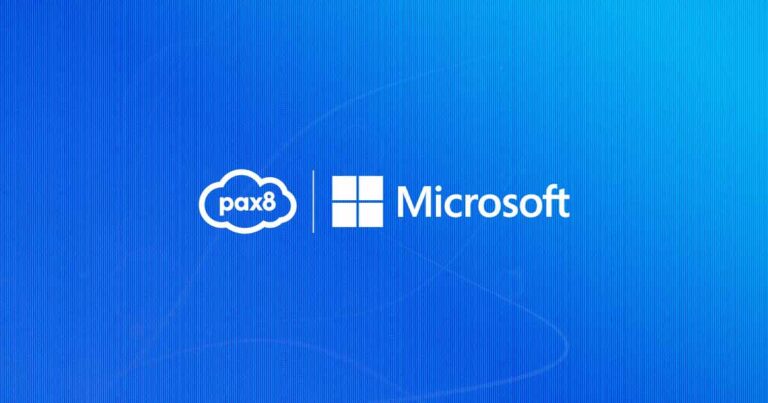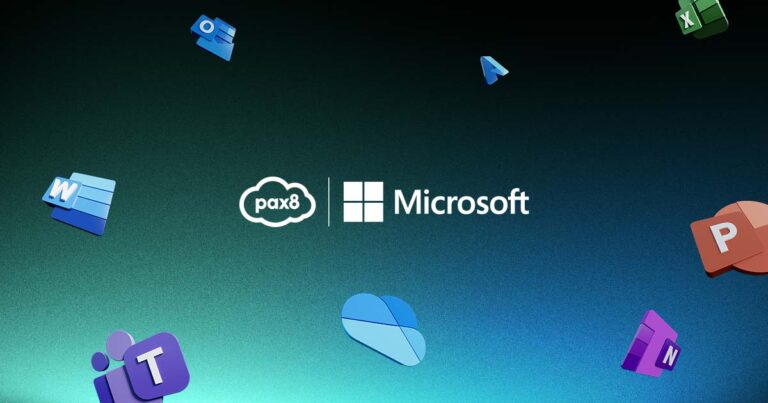Learn why and how you should be selling it.
If you’re an agent in the telecommunications space, you may have considered the idea of selling additional solutions outside of network or connectivity to your medium enterprise clients. In the modern channel, there are many alluring opportunities to begin selling new solutions like cloud applications and services. Unfortunately, without years of expertise in those areas, it can be difficult to know where to start or what best practices to follow.
In this article, we’ll discuss the reasons why you should consider offering Microsoft through a co-managed model, as well as some of the biggest keys to doing it successfully.
Why Should Agents Sell Microsoft?
Microsoft matters in the modern workplace.
With their suite of integrated cloud solutions that provide productivity, communication, collaboration, and infrastructure capabilities, Microsoft is the proven SaaS engine of the modern workplace.
Organizations need tools that can allow their teams to seamlessly communicate and collaborate from anywhere. It’s a demand that’s only grown larger with the remote work surge in 2020.
Microsoft delivers on that need with Teams, a comprehensive communication solution that integrates with apps like Word, Outlook, PowerPoint, and more as part of the M365 productivity suite. And with the built-in advanced security features of M365, Teams and other apps in the suite also provide a layer of protection against modern cyberthreats.
Medium enterprise clients face challenges with procurement.
While the demand for Microsoft solutions is high, many medium enterprise clients and their internal IT teams face struggles while procuring them. Most of these businesses buy Microsoft solutions either directly from Microsoft through an Enterprise Agreement (EA) or from other CSP distributors and resellers. These arrangements can make things difficult for businesses in a number of ways.
Many companies spend time and money sorting through the SKUs and licensing guidelines, while also having to keep a close eye on usage to avoid paying for unused licenses.
When things go wrong, support delays can cause further issues. This arrangement also leaves clients susceptible to costly and time-consuming audits. And these are only a few examples of problems clients can run into every day.
With the Pax8 co-managed model, you can eliminate these hurdles for your clients, getting them the solutions they need without the headaches. This is your opportunity to help your clients reduce operating costs, lower their risk, and free up time for their internal IT team.
How Should Agents Sell Microsoft?
Offer Microsoft and complementary cloud solutions.
The three main categories of Microsoft products you’ll want to start offering are Microsoft 365, Teams, and Azure. M365 provides a single integrated solution that combines productivity apps with advanced security features, device management, and an always up-to-date Windows OS.
Teams, which is included in M365, is the hub for teamwork and collaboration in Microsoft that combines chat, video meetings, calling, document collaboration, screen sharing file sharing, and calendaring integration.
Azure is a growing collection of integrated cloud services that developers and IT professionals use to build, deploy, and manage applications through Microsoft’s global network of data centers.
Once you’ve established these solutions in your catalog, you can consider adding complementary cloud solutions from best-in-class vendors through Pax8 to help clients protect their data. Email, endpoint, and anti-phishing security tools further fortify a client against cyber threats while storage and continuity solutions ensure their valuable data doesn’t get lost.
Ask the right questions.
Selling your clients on your new offerings requires getting insights from them about their business. Don’t rely on outdated sales processes or close-ended questions. Instead, try asking open-ended questions that reframe the issue with a story.
For example, instead of asking a client how many licenses they have or how much those licenses cost, try phrasing your questions more like this: “We find that for a lot of our clients, their Microsoft licenses have grown organically over time, leaving them in the dark on which SKUs they have and use. How are you currently tracking your license inventory?”
The element of storytelling is key, as specific examples can help lead you to the particular pain points your client is facing.
If you want to learn more about the best sales methodologies and tactics for co-managed IT, check out the Co-Managed IT Expert Certification course, available to all Pax8 partners through Pax8 Academy.
Tie specific pain points to solutions.
Once you’ve gained insights into what pain points your client is struggling with, you can identify the right co-managed solution that would help them overcome those hurdles. See the chart below to determine which pain points to connect with some industry-leading solutions.
Use an email template to streamline outreach and communication.
Not sure how to start or advance the co-managed IT conversation with your client? The Wingman can help. Check out The Agent’s Guide to Selling Co-Managed Microsoft where you’ll find an email template you can use to communicate all the benefits available with Pax8 co-managed model.
Leverage a modern platform and partner experience.
The Microsoft ecosystem can be a complicated world to explore, but the right partner can make that journey a lot easier. Pax8 simplifies buying and managing cloud solutions at every step, giving your clients a modern cloud-buying experience and you a great opportunity to earn new revenue.
The benefits of the Pax8 experience include a deep bench of Microsoft experts, a library of educational resources, sales enablement content, and 24/7 US-based support. It also means your clients have access to the dynamic Pax8 Platform, where they can quote, order, provision, and manage billing seamlessly and all in one place.
If you’re ready to start earning revenue with co-managed Microsoft through Pax8, become a partner today!
Dive Deeper
If you want to learn more about selling co-managed Microsoft, we have the right resource for you! Check out The Agent’s Guide to Selling Co-Managed Microsoft, a complete guide to positioning co-managed Microsoft to medium enterprise clients.





